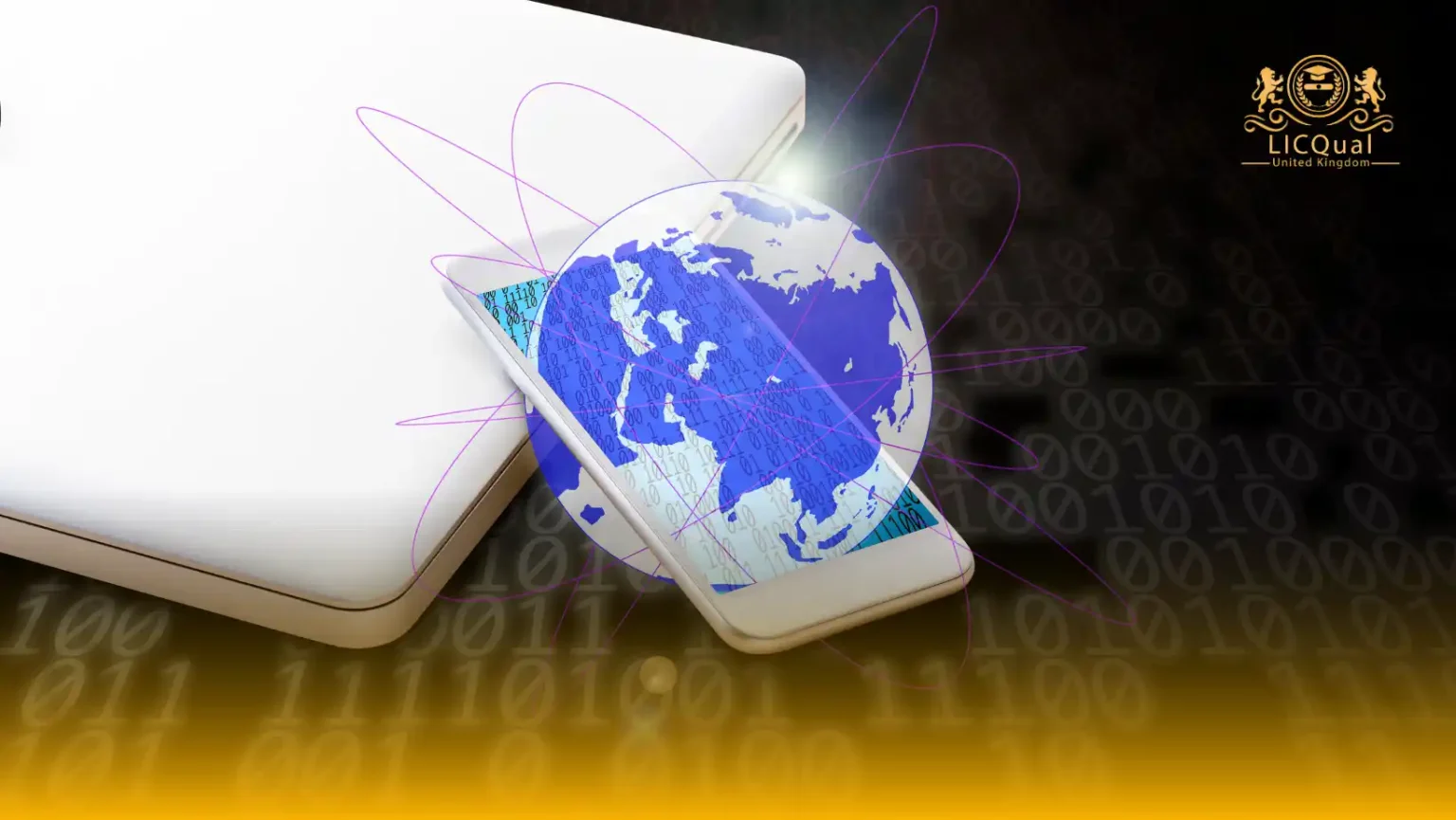The LICQual Level 2 Award in Information Systems Development and Society is a comprehensive program designed to enhance your understanding of information systems and their role in shaping the digital world. In today’s technology-driven society, businesses and organizations rely on information systems for decision-making, communication, and operational efficiency. This course provides an in-depth exploration of information system development, data management, and the societal impact of technological advancements.
Whether you are an IT student, professional, or technology enthusiast, this program equips you with essential knowledge about system development processes, ethical considerations, and the influence of digital transformation on businesses and communities. By mastering these concepts, you will gain a competitive advantage in the fast-evolving tech industry.
The LICQual Level 2 Award in Information Systems Development and Society covers advanced topics such as system architecture, database management, software development methodologies, and cybersecurity. You will explore the ethical, legal, and social implications of technology, ensuring a well-rounded understanding of how information systems affect individuals, organizations, and society as a whole.
With interactive learning modules, case studies, and real-world applications, this course provides practical insights into the development and management of modern information systems. By the end of the program, you will be equipped with the skills to analyze, design, and evaluate information systems while understanding their broader impact on society.
Earn your LICQual Level 2 Award in Information Systems Development and Society and stay ahead in the digital age.
Course Overview
Qualification Title
LICQual Level 2 Award in Information Systems Development and Society
Total Units
6
Total Credits
6
GLH
12
Qualification #
LICQ2200352
Qualification Specification
To enrol in the LICQual Level 2 Award in Information Systems Development and Society, candidates must meet the following entry requirements:
- Educational Requirements:Applicants should have a Level 1 qualification in IT, business, or a related field, or possess basic knowledge of information systems. Individuals without formal qualifications may be considered based on relevant experience or skills.
- Experience: No prior work experience is required; however, familiarity with basic IT concepts, digital communication, and data management will be beneficial.
- English Language Proficiency: Since the course is delivered in English, learners should have basic to intermediate English reading and writing skills. An IELTS score of 4.0 or equivalent is recommended for non-native speakers.
- Age Requirement: Candidates must be at least 18 years of age at the time of enrolment.
|
Qualification# |
Unit Title |
Credits |
GLH |
|---|---|---|---|
|
LICQ2200352-1 |
Evolution of Information Systems |
1 |
2 |
|
LICQ2200352-2 |
Software and Hardware in Information Systems |
1 |
2 |
|
LICQ2200352-3 |
Digital Communication and Networking |
1 |
2 |
|
LICQ2200352-4 |
Cybersecurity Basics and Threat Mitigation |
1 |
2 |
|
LICQ2200352-5 |
Data Management and Information Storage |
1 |
2 |
|
LICQ2200352-6 |
Legal and Ethical Considerations in IT |
1 |
2 |
By the end of this course, learners will be able to:
Evolution of Information Systems
- Understand the historical development of information systems and their impact on modern technology.
- Identify key advancements in hardware, software, and networking over time.
- Analyze the role of IT evolution in business, healthcare, and education.
Software and Hardware in Information Systems
- Differentiate between hardware components and software applications in an information system.
- Understand how operating systems, application software, and cloud computing support IT operations.
- Learn how to select, install, and maintain essential IT components.
Digital Communication and Networking
- Understand the fundamentals of networking, internet technologies, and data transmission.
- Explore different network types, protocols, and communication tools used in business and society.
- Learn how digital communication enhances collaboration, remote work, and global connectivity.
Cybersecurity Basics and Threat Mitigation
- Identify common cyber threats, including hacking, phishing, and malware.
- Understand key cybersecurity principles, including firewalls, encryption, and password security.
- Learn basic strategies for protecting personal and business data from cyberattacks.
Data Management and Information Storage
- Understand the principles of data storage, backup, and cloud computing.
- Learn how to organize, retrieve, and secure data for business and personal use.
- Explore database management systems and their role in efficient information processing.
Legal and Ethical Considerations in IT
- Understand IT laws, regulations, and compliance standards in digital environments.
- Analyze ethical concerns such as privacy, intellectual property, and digital rights.
- Learn about the responsible and ethical use of technology in different industries.
This diploma is ideal for:
- Individuals looking to enhance their understanding of information systems and digital technologies.
- Students aiming to build foundational knowledge in IT, networking, and cybersecurity.
- Professionals seeking to upgrade their digital skills for career advancement.
- Business owners and entrepreneurs wanting to integrate IT solutions for efficiency.
- IT enthusiasts exploring the evolution of information systems and emerging technologies.
- Individuals concerned about cybersecurity threats and data protection.
- Career changers interested in transitioning into the IT or digital sector.
- Educators and trainers looking to incorporate IT concepts into their teaching.
Assessment and Verification
All units within this qualification are subject to internal assessment by the approved centre and external verification by LICQual. The qualification follows a criterion-referenced assessment approach, ensuring that learners meet all specified learning outcomes.
To achieve a ‘Pass’ in any unit, learners must provide valid, sufficient, and authentic evidence demonstrating their attainment of all learning outcomes and compliance with the prescribed assessment criteria. The Assessor is responsible for evaluating the evidence and determining whether the learner has successfully met the required standards.
Assessors must maintain a clear and comprehensive audit trail, documenting the basis for their assessment decisions to ensure transparency, consistency, and compliance with quality assurance requirements.







